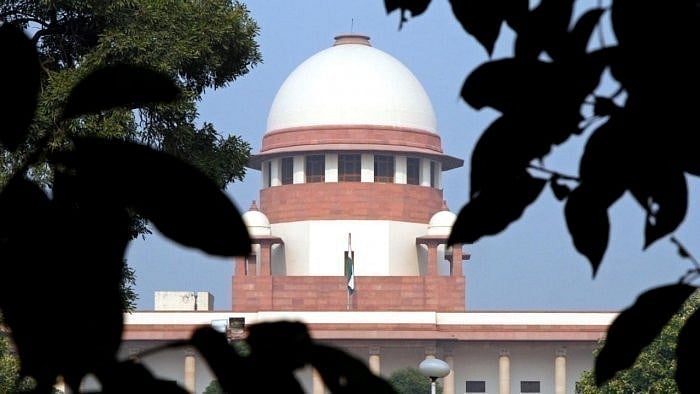
The Supreme Court of India.
Credit: PTI File Photo
New Delhi: The Supreme Court said parents can be compelled to provide necessary funds within the limit of their financial resources for education of their children as they have got an indefeasible, legally enforceable, lawful, and legitimate right to secure educational expenses.
Allowing a plea for divorce by mutual consent to a couple, living separately for 26 years, a bench of Justices Surya Kant and Ujjal Bhuyan requested the daughter studying in Ireland not to return a sum of Rs 43 lakh paid by her father.
Though a part of settlement agreement between her parents, the daughter declined to take her share out of total Rs 73 lakh agreed to be paid by the husband as one time settlement.
"We are of the considered view that Rs 43,00,000 is an amount to which respondent no 2 (daughter) was entitled to in law. She, being the daughter, has an indefeasible, legally enforceable, lawful, and legitimate right to secure educational expenses from her parents. All that we observe is that the daughter has a fundamental right to pursue her education, for which the parents could be compelled to provide necessary funds within the limit of their financial resources," the bench said.
The court noted said amount has been kept by the father without any compelling reasons, which shows that he was financially sound to the extent of providing the financial assistance to his daughter for her academic pursuits.
"The daughter has, thus, got a right to retain that amount. She need not, therefore, return that amount either to the appellant (mother) or to respondent No 1 (father), and may suitably appropriate it as she may deem fit," the bench said.
In the case, the mother approached the Supreme Court challenging the Madhya Pradesh High Court's order which increased her monthly maintenance from Rs 5,000 fixed by the family court to Rs 7,000 only.
The wife claimed her husband's salary was more than Rs 80,000 per month she was entitled to the maintenance, keeping in view the monthly income and standard of living of the husband.
A daughter born from the wedlock lived under the care and custody of the appellant-wife, throughout.
The court referred the matter to mediation where the husband agreed to pay Rs 73 lakh --Rs 30 lakh to wife and Rs 43 lakh to the daughter.
Taking the settlement into record, the court granted divorce using its extraordinary power to do complete justice, as the couple were living separately for the last 26 years.
